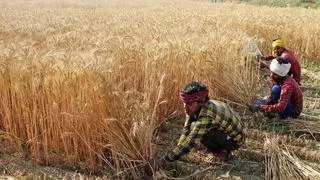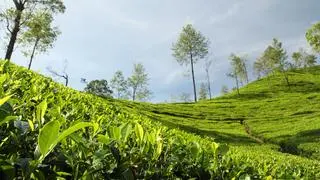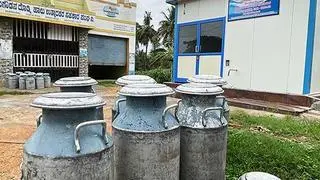Farmgate prices of raw coffee have started easing at the start of the new harvest season tracking the global trends. Global prices have retreated in recent weeks on demand concerns due to rising inflation and fear of recession and improving supplies among other factors.
In Karnataka, the farmgate prices of arabica parchment which had touched an all-time high of ₹17,000 per 50-kg bag, a few weeks ago, have now declined to around ₹14,000-14,500 levels for the new crop, a drop of around 15 per cent. The fly picking or the harvest of early ripened beans has begun in parts of Kodagu and Chikkamagalur, the key growing regions of arabicas.
Similarly, arabica cherry prices have come down to ₹6,500-7,000 from around ₹9,000-9,250 levels in the end of August — a decline of around 25 per cent.
However, the current prices of arabica parchment and arabica cherry are higher than the corresponding prices in the same period last year. Arabica parchment prices hovered around ₹12,600-12,800 per 50-kg bag at the end of October last year, while arabica cherry prices were ₹5,400-5,600 per bag.
ICE December arabica futures which hovered around $2.28 per pound in early October have now eased to less than $1.80 per pound. Similarly, the March 23 futures prices have eased from around $2.15 to around $1.77 per pound.
Also, the robusta farmgate prices in Karnataka have declined, but the fall is not as steep as witnessed in arabicas. From around ₹10,200-10,250 levels in late August, the robusta parchment prices have come down to ₹9,000-9,100 levels.
Rupee, the saviour
“The world market for arabicas is coming down every day. From a high of 242 cents per pound, it has come down to 169 cents per pound. But for the rupee, the decline could have been much more,” said Bose Mandanna, an arabica grower in Suntikoppa. Also the concerns over recession in Europe and the uncertainty over the war is weighing on the prices, he said.
Jeffry Rebello, President, The United Planters’ Association of South India (UPASI), said the prospective crop in Brazil looks good. The global macro economic situation is not conducive to all commodities. Higher interest rates, inflation and global tightening is putting pressure on the markets, Rebello said.
N Ramanathan, Chairman, Karnataka Planters’ Association (KPA), attributes the fall in prices to speculation by the traders, while observing that the prices always see a drop around the time of Diwali and also during the New Year.
The fly picking – harvesting of early ripened beans for the 2022-23 crop year starting October – has started in some areas of Kodagu and Chikkamagalur. However, due to uneven and extended rainy season and lack of adequate sunshine, the ripening is unlikely to be even, thereby prolonging the harvest process.
Coffee Board, in its initial post-blossom estimates, pegged the 2022-23 crop at a record 3.93 lakh tonnes comprising 1.16 lakh tonnes of arabicas and 2.77 lakh tonnes of robustas. However, due to the excess and continuing rains, the Board expects the crop to be lower by 10-15 per cent than initial estimates.








Comments
Comments have to be in English, and in full sentences. They cannot be abusive or personal. Please abide by our community guidelines for posting your comments.
We have migrated to a new commenting platform. If you are already a registered user of TheHindu Businessline and logged in, you may continue to engage with our articles. If you do not have an account please register and login to post comments. Users can access their older comments by logging into their accounts on Vuukle.